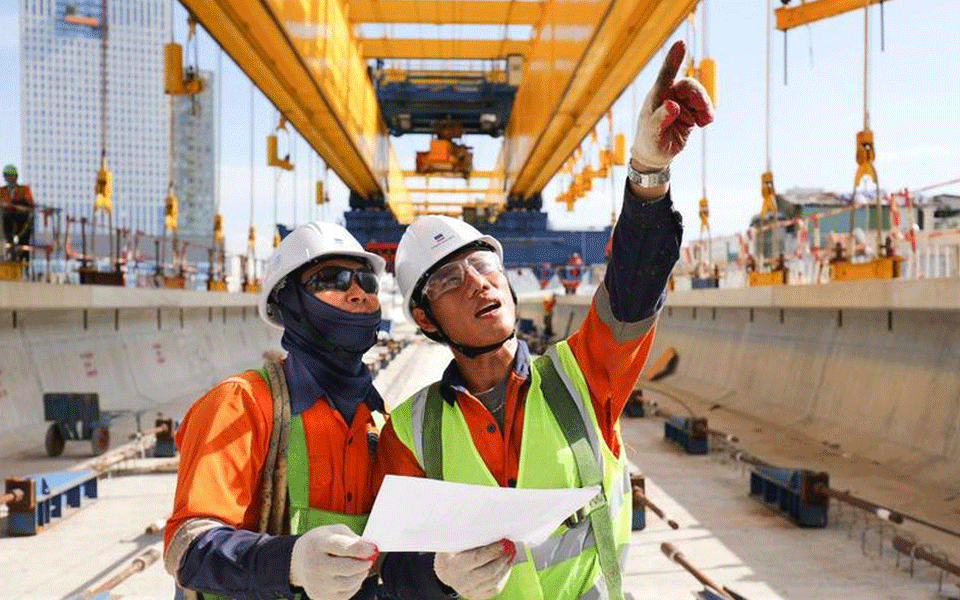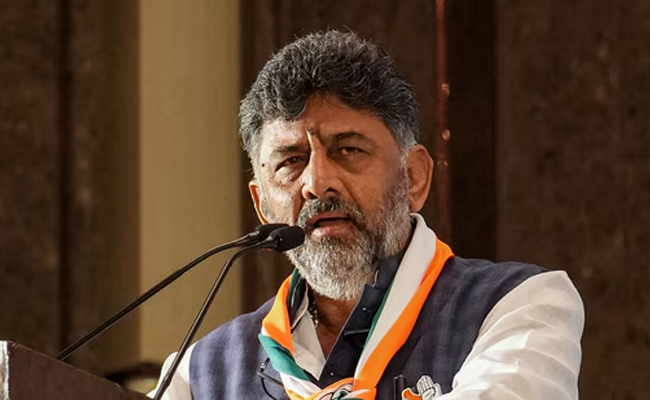Paris (AP): A subsidiary of French construction company Vinci was handed preliminary charges Wednesday of forced labour and other alleged violations of the rights of migrant workers hired to build infrastructure in Qatar around the World Cup.
The company denies the charges and is appealing them, and accused magistrates of rushing through the decision ahead of the tournament opening Nov 20.
But a human rights group behind the initial legal complaint against Vinci seven years ago hailed Wednesday's move as a breakthrough, after protracted efforts to hold the company accountable for the alleged abuses.
Leading up to the World Cup, Qatar has faced scrutiny for its labour laws and treatment of hundreds of thousands of migrant workers, mostly from India, Bangladesh, Pakistan, Sri Lanka, Nepal and other South Asian countries.
Vinci subsidiary Vinci Construction Grands Projets was given preliminary charges of holding multiple people in servitude through forced labour; submitting workers to conditions and lodging incompatible with human dignity; and obtaining services from people who were vulnerable or in a situation of dependence, according to a judicial official and French advocacy group Sherpa.
Sherpa filed the original complaint in 2015, along with several former workers.
Sherpa said it collected testimonies about the working conditions at some construction sites operated by Vinci's subsidiary, which included working in temperatures over 45 C (113 F) with insufficient water, the withholding of passports, and lack of access to showers in accommodations.
The charges are a strong signal for these economic players who profit from modern slavery, Sherpa president Sandra Cossart told The Associated Press. We hope that it will make things move.
Vinci said earlier this week that its representatives were being summoned by investigating magistrates to face potential charges in the case.
Reacting to the charges Wednesday, the Vinci subsidiary's lawyer Jean-Pierre Versini-Campinchi said on France-Info radio that the company will seek to have the decision annulled.
He denounced what he called the insufficient time frame given to lawyers to lay out useful responses, and the hasty choice of the date (for the summons), just a few days before the opening of the football World Cup.
Vinci said Monday that none of the projects awarded to its Qatari unit QDVC had any connection to the World Cup, and that it is committed to improving the living and working conditions of all workers at its construction sites, all around the world.
The construction group has worked on some of the infrastructure that will be used during the World Cup, including the Doha metro connecting the airport with the historic city center, and the Lusail light-rail transit system transportation network.
The judicial official said that the preliminary charges relate to work carried out in connection with the World Cup. The official was not authorized to be publicly named discussing an ongoing investigation.
Preliminary charges under French law mean there is reason to suspect a crime has been committed but allow magistrates more time for investigation before deciding whether to send the case to trial.
Let the Truth be known. If you read VB and like VB, please be a VB Supporter and Help us deliver the Truth to one and all.
Gorakhpur (PTI): A hospital employee was booked for allegedly sexually assaulting a woman in the pretext of an ultrasound test here in the district women's hospital, police said on Saturday.
According to the complaint, the woman, a resident of the Gulriha area, visited the district women's hospital on Thursday morning for an ultrasound test.
She was directed to a room, where Abhimanyu Gupta was conducting ultrasounds. When her turn came, the accused allegedly stared at her and told her to remove all her clothes, claiming it was necessary for the test and that a massage would also be required, she said.
ALSO READ: UP: Girl kidnapped, raped multiple times over 25 days; accused held
The woman alleged that once she complied, the accused began making obscene advances and tried to force himself on her. When she screamed, he allegedly gagged her, abused her and threatened to kill her before pushing her out of the room.
She said her complaints within the hospital went unheard, forcing her to approach the police.
Taking cognisance of the complaint, the hospital administration constituted a three-member inquiry committee, officials said.
Senior consultant (paediatrics) Dr Jay Kumar said, "The woman has levelled serious allegations against a staff member. Senior officials have been informed, and a departmental inquiry is underway. Strict action will be taken if the charges are proved."
Kotwali Station House Officer Chatrapal Singh said a case has been registered, and efforts are on to nab the accused.





